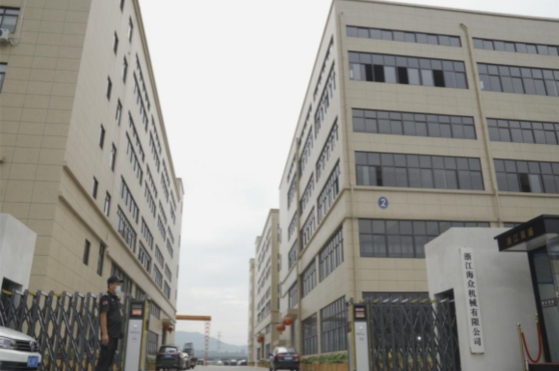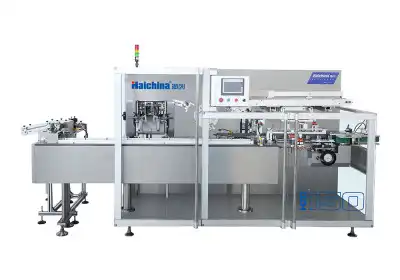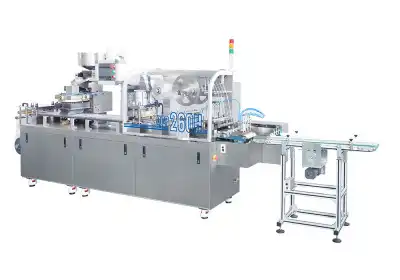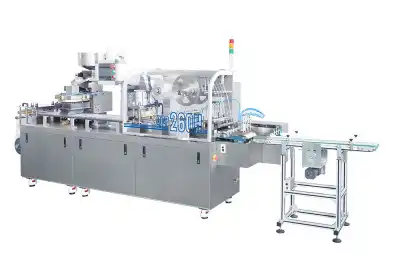Understanding Blister Packaging Materials and Their Properties
Plastic Film Options for Blister Packaging
When it comes to blister packaging for capsules, the choice of plastic film is paramount. Polyvinyl chloride (PVC) is a common option due to its cost-effectiveness and clarity. However, for capsules requiring enhanced moisture protection, polyvinylidene chloride (PVDC) or cyclic olefin copolymer (COC) films may be more suitable. These materials offer superior barrier properties, safeguarding sensitive capsule contents from environmental factors that could compromise their efficacy.

Foil Backing Selection for Optimal Protection
The foil backing of blister packaging plays a crucial role in preserving capsule integrity. Aluminum foil is the industry standard, offering excellent moisture and light protection. For capsules that are particularly sensitive to moisture, cold-formed aluminum produced using advanced blister packaging machines can provide an even higher barrier. Some manufacturers opt for paper-backed foil for a more eco-friendly approach, though this may slightly reduce the packaging's protective qualities.

Innovative Materials for Sustainable Packaging
As sustainability becomes increasingly important in the pharmaceutical industry, new materials are emerging for blister packaging. Biodegradable films and recyclable options are gaining traction. These materials aim to maintain the protective qualities of traditional blister packaging while reducing environmental impact. When considering sustainable options, it's essential to ensure they meet regulatory standards and provide adequate protection for your specific capsule formulation.

Evaluating Blister Packaging Machines for Capsule Production
Assessing Production Capacity and Flexibility
When selecting a blister packaging machine for capsules, production capacity is a key consideration. High-speed machines can significantly boost output, but they may not be necessary for smaller-scale operations. Look for machines that offer flexibility in terms of blister size and format to accommodate different capsule types and potential future product changes. Some advanced blister packaging machines feature quick-change tooling, allowing for rapid transitions between different capsule sizes or packaging configurations.
Integrating Quality Control Features
Modern blister packaging machines often come equipped with integrated quality control systems. These may include vision inspection systems that can detect missing or damaged capsules, ensuring that only perfect blisters reach the consumer. Some machines also incorporate in-line weight checking to verify capsule content accuracy. When evaluating blister packaging equipment, consider how these quality control features can enhance your production process and reduce waste.
Considering Automation and Industry 4.0 Compatibility
As pharmaceutical manufacturing moves towards greater automation, it's wise to consider blister packaging machines that are compatible with Industry 4.0 principles. Look for machines that offer data collection and analysis capabilities, allowing you to monitor production efficiency and identify areas for improvement. Some advanced systems can even predict maintenance needs, reducing downtime and optimizing overall equipment effectiveness. When choosing a blister packaging machine, consider how it will fit into your broader manufacturing ecosystem and contribute to your long-term automation goals.
Optimizing Blister Design for Capsule Protection and Consumer Appeal
Designing for Tamper-Evidence and Child-Resistance
Blister packaging for capsules must often meet specific safety requirements, particularly in the pharmaceutical industry. Tamper-evident designs, produced by advanced blister packaging machines, help ensure product integrity and consumer safety. This may involve features like perforations that clearly show if the packaging has been opened. Child-resistant designs are crucial for certain medications, typically incorporating a peel-push mechanism that requires coordination to open. When designing your blister packaging, consider these safety features and how they can be implemented without compromising user-friendliness for the intended consumer group.
Enhancing Brand Identity Through Packaging Design
While protection is paramount, blister packaging also presents an opportunity to reinforce brand identity. The cavity shape, overall package dimensions, and even the arrangement of capsules can be customized to create a distinctive look. Some manufacturers use embossing or special printing techniques on the foil backing to add visual appeal and brand recognition. When working with a blister packaging machine provider, explore options for customization that can make your product stand out on the shelf while still meeting all functional requirements.
Balancing Functionality with Sustainability
As consumers become more environmentally conscious, balancing packaging functionality with sustainability is increasingly important. This might involve minimizing material usage without compromising protection, or incorporating recycled materials where possible. Some innovative blister designs allow for easy separation of materials after use, facilitating recycling. When optimizing your blister design, consider how you can reduce environmental impact while still meeting regulatory requirements and maintaining product integrity. This balance can become a key differentiator in the competitive capsule market.
Conclusion
Choosing the right blister packaging for capsules involves careful consideration of materials, machinery, and design elements. By understanding the properties of different packaging materials, evaluating the capabilities of blister packaging machines, and optimizing design for both protection and appeal, you can create a packaging solution that meets regulatory requirements, preserves product integrity, and resonates with consumers. Remember that the ideal packaging solution may evolve with changing market demands and technological advancements, so maintain flexibility in your approach and stay informed about innovations in the blister packaging industry.
Contact Us
For expert guidance on selecting the perfect blister packaging solution for your capsules, reach out to Zhejiang Haizhong Machinery Co., Ltd. Our team of specialists is ready to assist you in finding the ideal packaging equipment tailored to your specific needs. Contact us at [email protected] to explore how our innovative packaging solutions can enhance your product's success in the market.





